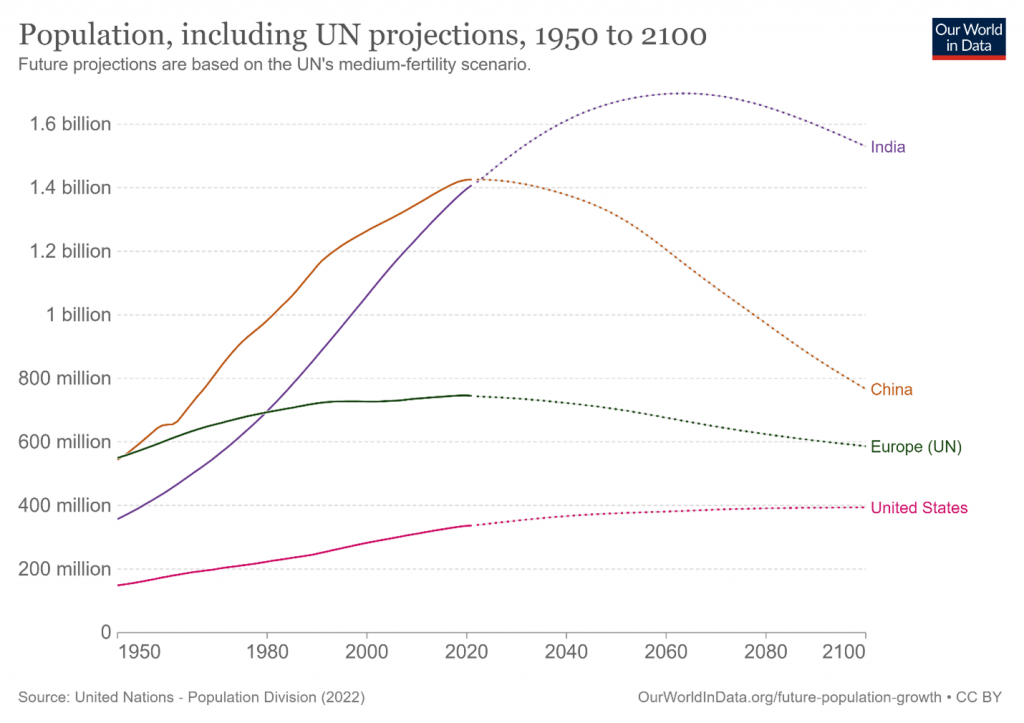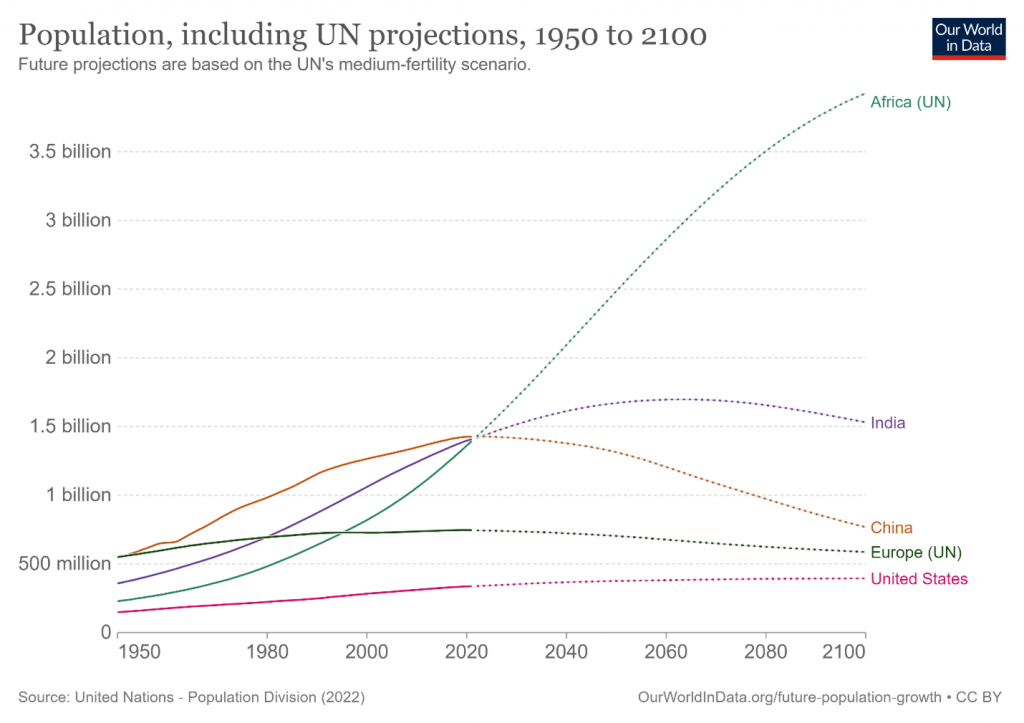2022 was a truly historic moment for the demographic evolution of the world’s most populous country. For the first time in 60 years, China’s population recorded a year-on-year decline. The Chinese ended 2022 850 thousand fewer. Unlike 60 years ago, when the population decline was caused by the famine that followed the “Great Leap Forward” initiated by communist dictator Mao Zedong, this time the causes are more complex and difficult to reverse.
On the one hand, it is a drop in births induced by the one-child policy that was introduced in 1980. Even though it was then abolished in 2016, the number of births has continued to fall under the impact of the behavioral and cultural changes China’s population has undergone. The zero-Covid policy has only lowered the motivation for couples to have children, making the birth rate in 2022 ultimately the lowest in the more than 70-year history of statistical records. On the other hand, the death rate in 2022 also reached its highest level since 1970, a rate also amplified by the Covid epidemic.
The chart below, sourced from the UN, shows estimates of what is to come in terms of population dynamics worldwide, but especially in Asia.

If 2022 was the year China’s population decline began, 2023 will be the year India’s population overtakes China’s, following an upward trend that will peak towards the end of the fifth decade.
Will this lead to an economic and geopolitical rebalancing in Asia? I don’t think that economic development is just about population size. The Wall Street Journal noted that in 1980, India’s economy was 68% of China’s, and in 2021 it was only 17%. In recent decades India has caught up demographically with China, but economically it has fallen further and further behind.
Without fail, India has a burgeoning IT sector, but this will not be a profession for most Indians. Their prosperity will inevitably depend on the development of the manufacturing sector. In this respect, the lack of infrastructure could turn into an opportunity to bring large numbers of locals into the labor market. However, this is conditional on the existence of development funds to finance large infrastructure projects. Such funding could be provided by all those countries interested in diversifying supply chains and limiting China’s regional power in Asia.
Finally, the outcome of economic developments in the region remains uncertain. I am among those who do not believe that uninterrupted population growth is the key to our success as a civilization. The planet is already in great pain and is giving us desperate signs that there are already too many of us to be able to keep it unaltered. Japan and South Korea are countries that have been facing rapid population ageing for years, and even though they are facing economic strains, they are being managed and their economic (and especially technological) relevance in the world remains significant.
For the development of a country, investments in productivity growth, which make an employee produce more than he does today, can compensate for a decrease in population. Technology will be able to work wonders in this respect. After all, in the decades to come, it is not the quantity of people that will matter, but their quality, namely their education, the sophistication of their skills. But even if we can’t talk about an economic slowdown induced by negative demographics, we can certainly talk about a long-term economic slowdown in China.
However, beyond these demographic and geopolitical changes in Asia, a perhaps even greater challenge looms for the world in general, and for Europe in particular. To understand the big challenge, I suggest we add another line to the chart above, in which case we get the picture below.

If the UN projections come true, we will witness a population boom in Africa, with no foreseeable peak until 2100, which will overshadow demographic developments in Asia.
The consequences of demographic developments in Africa are relevant in several respects.
Firstly, the representation of African countries in international institutions will not be able to remain at the current level, as they will have an increasing influence in global decision-making.
Secondly, African countries will be increasingly courted for their natural resources, the growing labor force available, and the growing consumption that a larger population will generate.
Third, Africa is a huge natural park with a wealth of fauna and flora unique in the world. A boom in Africa’s population coupled with economic development capable of providing even minimal welfare will pose a real threat to the conservation of the continent’s unique ecosystem. It would be a disaster if African countries were to follow the same path of unfriendly development that developed countries have followed over the last century.
Fourthly, we can expect an increase in emigration pressures primarily towards Europe. Such a trend could be generated by the combination of growing purchasing power and climatic developments that could make Africa an increasingly inhospitable continent. Strictly in theory, for an ageing Europe, receiving migrants would make sense. In practice, however, current social and political tensions remind us that elements of history, identity and culture should not be underestimated.
A “green development” of Africa is imperative, because only development can stabilize the population on the continent, only development can diversify the sources of raw materials needed for a sustainable global energy transition and because only if it is “green”, development will allow the preservation of Africa’s natural heritage.
For Africa it would be a disaster to target only the “net-zero emissions”. Therefore it has to be helped.
Have a nice weekend!



